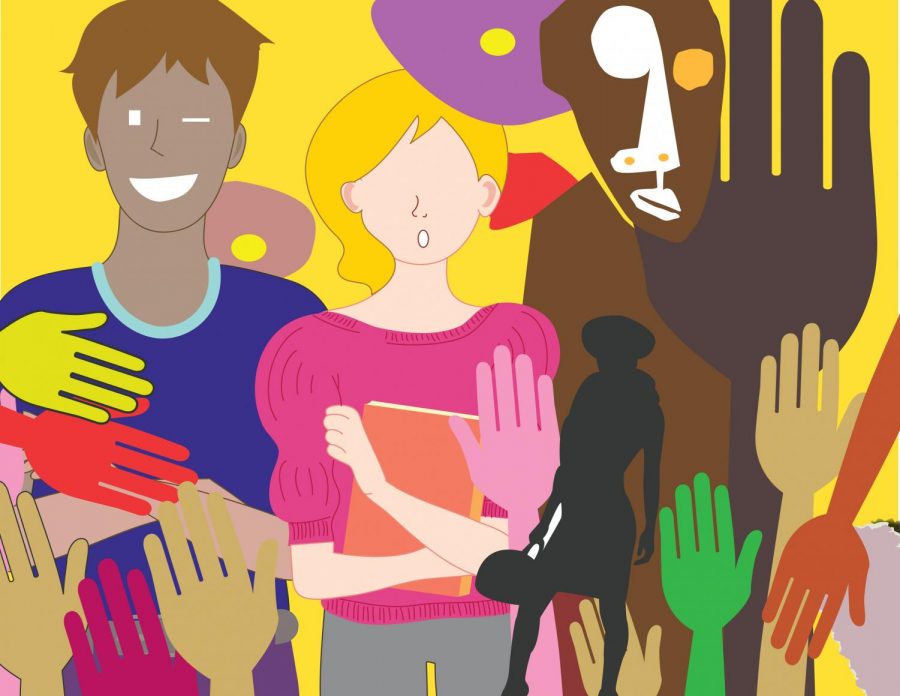OPINION: Respect all spaces
Multicultural spaces are important, integral and irreplaceable for students who need them
More stories from JOEL KEMEGUE
It is important to feel accepted wherever you go, and multicultural spaces offer options for students who may not be comfortable in other places on campus.
The Multicultural Student Centers are some of my favorite places on campus. If you have time in between or after classes you can go up to any of the centers on the fourth floor of the CUB and study, talk to people, sleep or do whatever you need to do that’s legal in a public space.
But besides the convenience there’s also a sense of community that comes with them that still exists outside the fourth floor but is harder to find.
“When you go to the [Chicanx/Latinx Student Center] it makes you feel at home,” said CLSC student mentor Hugo Barragan. “It kind of gives you a reminder why you’re in college in the first place.”
I went to a high school with over 1,500 students, and during my junior year, one of the two black faculty members told me there were about 30 black men in the entire school.
I did not usually see a lot of people who looked like me in that school.
But during my sophomore year the two black faculty members decided to start hosting meetings for the black men at school. During lunch we’d go down to a classroom, a classroom where I could see more unique black men than I would in a month and were able to talk about issues that pertain to being black. Issues I had a much harder time talking about with other people. And though we only had those meetings once a month, they were some of the best parts of my high school experience.
Herein lies the power that multicultural centers have. Not to say we’re all constantly talking about critical race theory and identity in the centers, but there is identity among the people in the centers. As long as that identity affects how we interact with the world and how the world interacts with us, spaces like that will be important.
Director of Multicultural Student Services Stephen Bischoff said the centers exist to help students throughout their college career and sustain their culture on campus. He said the goal of the centers is to always be welcoming and inclusive to everyone at WSU.
“Those spaces are still spaces that are carved out by students,” Bischoff said. “It’s a space where we recognize that there is a need to have these home bases or spaces that can be promoting education and identity.”
Bischoff said the challenging thing on predominantly white campuses is that students of color might not feel support in their identities.
“Identity in our society is something that we have to battle with often because of perceptions of what our experiences are … there’s different things that shape us.” Bischoff said.
Rick Flores, Interim Retention Counselor for the Chicanx/Latinx Student Center, encourages students to come up here and not only learn about the Chicano/Latinx community, but also talk to people.
“If you’re going to come up here, talk with people. Don’t just come up here and sit with yourself. The whole point of these centers and why we have them is to build community. You can’t build community if you’re staying quiet,” Flores said.
Flores said students will only be asked to leave if they’re being racist, homophobic or pushing any type of hate speech.
“We need allies from outside our community,” Flores said. “Who are we to push people that want to associate and help us out?”
So, go to a multicultural center. Sit, talk to people and if you see me in the African-American Student Center, don’t hesitate to tell me how much you love my writing. Just remember that while these spaces are for everyone and everyone should come, they do hold special significance for some people.
And that’s not a deterrent, nor do I want it to deter you. Just keep it in mind.
Joel Kemegue is the current editor of the Mint section and a sophomore creative writing major from Bellevue, Washington. He enjoys reading, writing and...




